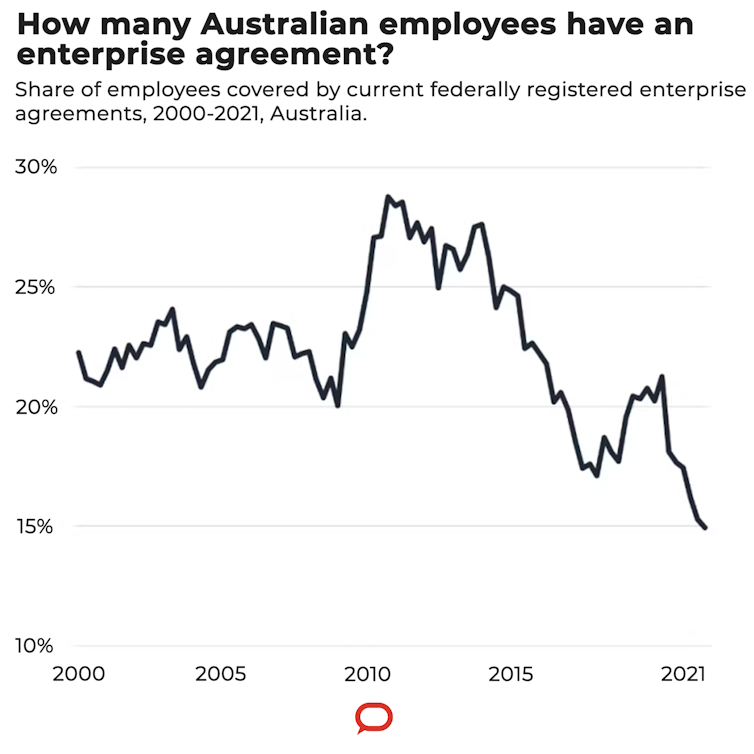Why unions and small business want industry bargaining from the jobs summit – and big business doesn't
- Written by The Conversation

This article is part of The Conversation’s series looking at Labor’s jobs summit. Read the other articles in the series here.
The trade union movement’s push to reform Australia’s enterprise bargaining system looks set to be a major issue at this week’s Jobs and Skills Summit.
The Australian Council of Trade Unions’ plan for sectoral or industry-level bargaining was outlined by secretary Sally McManus last week:
The way we’d see it working is that, where it makes sense to have multi-employer bargaining, both the workers’ representatives and the employers sit down and negotiate across their sector.
Innes Willox, chief executive of Australian Industry Group, labelled the proposal “seriously misguided” and a “throwback” to the 1960s. He warned it “would reduce opportunities for employers and employees to negotiate genuine improvements in productivity and work conditions that suit their workplace”.
But employer groups’ reactions have been far from unanimous.
The Council of Small Business Organisations Australia has agreed to work with the ACTU on industry bargaining reforms. The council’s chief executive, Alexi Boyd, said:
The current bargaining system was not built for us. It is not efficient and is too complicated. We welcome the opportunity to explore new flexible single- or multi-employer options that can be customised to our circumstances. The one-size-fits-all approach doesn’t work.
What is industry bargaining?
Industry bargaining is a common approach to wage negotiations in most European countries. It involves representatives of workers and employers negotiating over the pay and conditions to apply across specific sectors of the economy.
New Zealand is in the midst of introducing a form of industry bargaining through its Fair Pay Agreements Bill, currently before the NZ parliament.
An industry-level approach to award wage negotiations also operated in Australia up to the early 1990s, before the Hawke-Keating government introduced enterprise bargaining (negotiating agreements by workplace).
Enterprise bargaining is broken
Hawke and Keating saw enterprise bargaining as the way to modernise the industrial relations system in line with their mission to make Australia globally competitive.
Thirty years on, though, it is not delivering for employers or workers.
Unions can be involved in enterprise bargaining where they are strong enough. However, in many workplaces there is no negotiation. The employer simply puts out its proposed agreement for a vote by the employees, then submits it to the industrial relations umpire (the Fair Work Commission) for approval.
It has become increasingly apparent over the past decade that enterprise bargaining is broken. In 2012, 27% of employees were covered by an enterprise agreement. By 2021 it was just 15%.
In a system of multi-employer bargaining, the building owner or building services management company – which ultimately benefits from the workers’ labour and determines its price through the contracts it makes with the cleaning and security companies – would be brought into the equation.
In this way, industry or multi-employer bargaining would ensure a level playing field.
Businesses would not have to fear a competitive disadvantage from having to pay higher wages than rival businesses. Nor could they undercut each other by outsourcing to avoid higher wages and conditions in an agreement.







